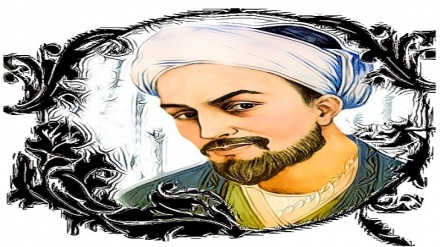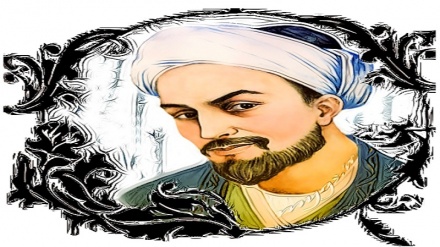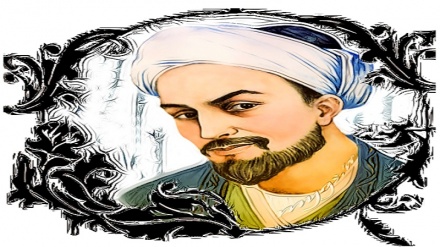Iranian notables, sources of global honor (194)
Welcome to this week's episode of the series "Iranian Notables, Sources of Global Honor". Today, we continue to discuss the thoughts and works of the famed and acclaimed Iranian poet, mystic, author, and thinker, Nur Ed-Din Abdul-Rahman Jaami, who lived in 15th Century AD.
We pointed out that Jaami was born in Jaam, in Khorasan province in 1414 AD. His paternal ancestors lived in the city of Isfahan, gradually migrating to Khorasan region, and settling in the city of Jaam. A few years prior to Jaami's birth, his father took up residence in the city of Herat in the company of his family members. Jaami completed his preliminary studies in Jaam, learning Farsi literature and Arabic grammar, under his father. Later on, Jaami continued his studies in the educational and literary centers of Herat and Samarqand, gaining expertise and mastering Arabic language, in addition to scientific fields such as logic, philosophy, mathematics, and Islamic sciences. Thereafter, he developed an interest in mysticism. Given his vast knowledge, and his exemplary behavior, he established and maintained an especial status in the eyes of the rulers and Sultans of his day and age. Thus, he catapulted to fame and was honored and respected in all of the Farsi-speaking nations of his era, namely the Ottoman Empire, Asia, and Indian Subcontinent.
Jaami passed away in the year 1492 AD, aged 81, and was laid to rest in the city of Herat. The era of Jaami was one of the golden ages of Iran's art and literature.
The state of social and political affairs was inappropriate and chaotic in the era of Jaami. Hence, his era is filled with deep-rooted tensions and paradoxes, narrow-mindedness, derailment and deviation from the righteous path, and superstitions. In his poems, Jaami has referred to the main factors, which contributed to the deterioration and degradation in that phase in time.
In Jaami's era, ideological and religious leaders only sought fame. In Jaami's view, the antidote to this contagious disease was to avoid fame, and to resist temptations. Jaami led a simple lifestyle, while keeping the company of his associates, believing that he could guide and lead the seekers of truth in a more appropriate manner via establishment and maintenance of interactions with them.
Given that in an ailing community, nothing remains intact; mysticism was monopolized by a few, who maintained worldly desires, in Jaami's era. According to Jaami, in his day, mysticism was derailed from the right path to an extent that deceit and materialism had turned into an integral part of Gnosticism in his day and age. Whatever was considered inappropriate in the realm of mysticism in past centuries, had turned into the common customs and traditions of mysticism in Jaami's era. The inappropriate features which had infiltrated into the domain of mysticism in 5th and 6th Centuries, reached their peak in Jaami's age. In his days, mysticism introduced virtues as vices, and vices as virtues, with the majority of Sufis pretending to believe in monotheism.
One of the other main parameters which contributed to political and social deterioration in Jaami's era was the selfishness of the then leading officials. Political power mainly determines and shapes the situation, in any day and age. Meanwhile, the state and makeup of political power is in fact the outcome of the views and culture of the community and the lifestyle of the members of the society from all walks of life, which was the case in Jaami's lifetime.
In the meantime, Jaami's awareness of the facts and realities of his day and age, reduced his bond and resemblance to the other Sufis of his era, turning him into an exceptional and idealist figure. He pointed out the root causes of the inappropriate conditions of his age, and displayed the tensions, problems, and concerns of his era within his poems. In fact, his poems mirrored the painful realities of his age, and his major concerns.
MR/ME


